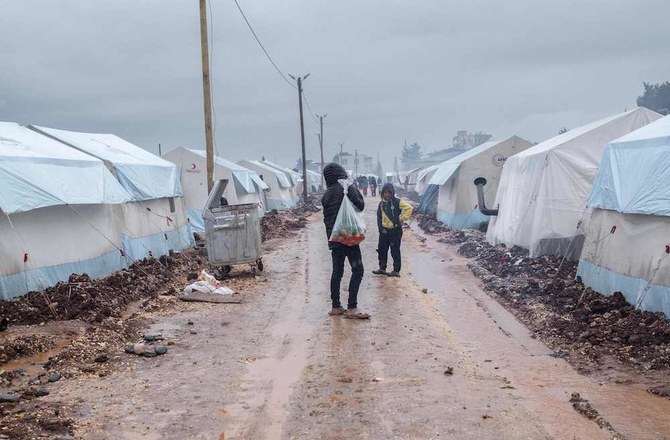RIYADH: The UN Office for Humanitarian Affairs on Friday thanked Saudi Arabia and other donor countries who contributed to raising over a quarter of the flash appeal issued by the UN following devastating earthquakes in Turkiye, the Saudi Press Agency reported.
The UN said it had raised $268 million in response to the $1 billion humanitarian funding appeal for relief work in Turkiye following the 7.8-magnitude quake on Feb. 6 and its aftershocks that devastated swathes of southeast Turkiye and parts of war-torn Syria.
OCHA spokesman Jens Laerke said that 27 percent of the appeal had been funded and the largest donors were Saudi Arabia, the US, Kuwait, the European Commission, and the UN Central Emergency Response Fund, while urging countries to provide support and contribute to financing the appeal.
He said that the aid comes in support of the response led by the Turkish government, adding that 9 million people were directly affected by the quakes and 3 million people had been displaced.
On Feb. 16, the UN launched the $1 billion appeal to help more than five million people in Turkiye and a twin flash appeal for Syria to help survivors over the first three months. The latter has raised $364 million of the $398 million requested.
The UN and other humanitarian agencies have reached more than 4.1 million people with basic household items and clothes, and 3 million with emergency food aid, while more than 700,000 people have received support to improve their living arrangements, including tents, relief housing units, and tent repair tools, Laerke said.
He added that 1.6 million have received water, hygiene and sanitation assistance and about 1 million liters of drinking water were delivered.
The UN humanitarian agency’s spokesman said that the Turkish Ministry of Health has been supported with 4.6 million vaccine doses, and 16 mobile health clinics, in addition to medicines and medical supplies for reproductive health and treatment of trauma and injuries.
“Now we are involved in the humanitarian emergency phase, where we look at what the survivors need,” Laerke told reporters in Geneva.
With additional input from AFP
































